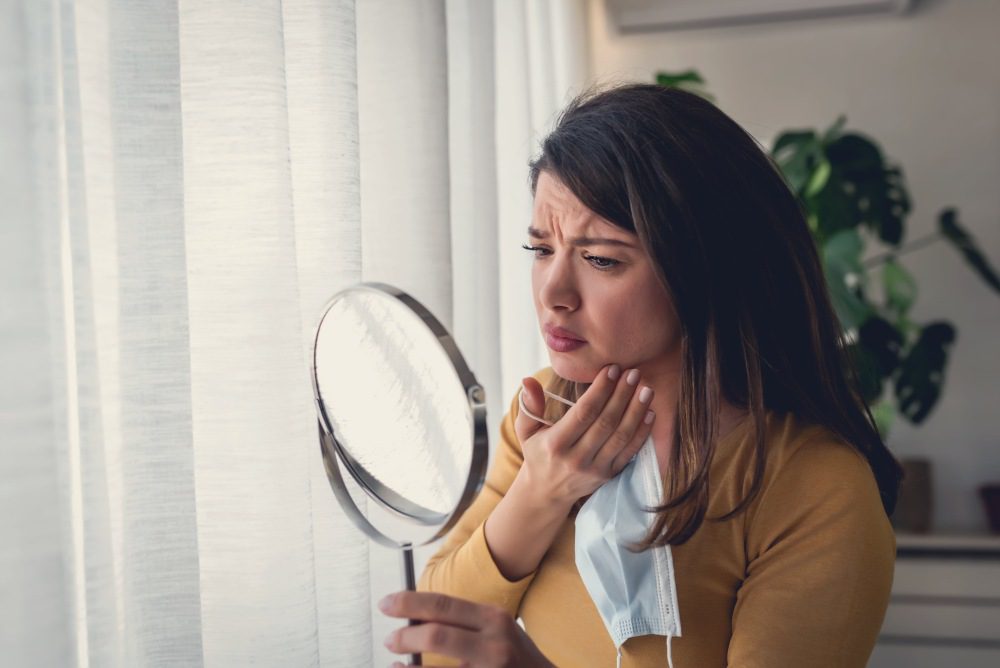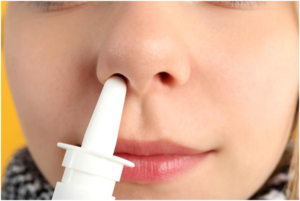To curb the spread of COVID-19, wearing a face mask has now become an integral part of our everyday routine. While tight-fitting masks play a vital role in keeping us well-protected against the threats of the virus, the prolonged hours of having our faces in contact with a mask has also propelled unintentional side effects such as frequent skin flare-ups – or what we call ‘maskne’.
What Exactly Does Maskne Means?
Maskne may sound like a foreign term to some of us, but it certainly did not originate from nowhere. In fact, maskne has always been a prevalent issue among individuals whose professions require them to wear a mask regularly. Think – doctors and nurses. But now that all members of the public are required to put on a mask, conversations encircling maskne has hit a record high.
With all that said, what does maskne really means?
In short, maskne (clinically known as acne machanica), refers to the breakout of the skin from the wearing of face masks. But maskne is not just about pimples. It can be an umbrella term for several skin conditions, including whiteheads, blackheads, redness, rashes or even infection of your facial hair follicles.
Maskne is a common skin condition that ensues from the retention of heat and humidity from perspiration and exhaled air within the mask. When you breathe or talk, hot air is trapped in the mask – and this creates an ideal environment for yeast and bacteria to multiple.
Besides, this excessively high humidity can cause our skin barriers to break down, exacerbating existing skin problems. Hence, individuals with existing skin conditions are more at risk of developing maskne.
Maskne can also be caused by friction against your face. When you touch the mask and move it around, the constant rubbing can damage the outer protective layer of the skin, leading to chafing and irritation.
But luckily, like with any skin condition, there are ways you can prevent maskne. Let us tell you how.
3 Ways to Prevent Maskne
1. Practise Better Mask Hygiene
Since doing without a mask is not an option now, the least you could do is practise good hygiene habits by washing your fabric masks daily and not reusing disposable masks.
The accumulated oil, sweat, and dirt sit in your mask when you do not wash it or replace it – and the last thing you want is to put the mask back on your face.
2. Try to Remove Mask Every 4 Hours
Healthcare workers have found that removing their masks every four hours to let the skin breathe for about 15 minutes helps with decreasing the occurrence of maskne.
However, do only remove your mask when it is safe to do so.
3. Give Your Skin a Break From Makeup – At Least for the Time Being
Skip the makeup for now if you can. Wearing makeup under a mask not only leads to clogged pores and breakouts but also traps more sweat, moisture and oil on our faces. If you really have to put on makeup, keep it minimal and opt for non-comedogenic products.
How to Treat Maskne
Treat Your Face Right With a Proper Skincare Routine
When maskne develops, your skincare routine matters more than ever. Wash your face with gentle cleansers that are free from fragrance and oil. Also avoid overusing facial scrubs which can aggravate skin irritation. You would also want to apply moisturisers with hydrating properties immediately after washing your face to help hydrate, soothe and restore the protective skin barrier.
Look Out for Supplements With Skin-Loving Ingredients
Look for supplements with ingredients that focus on promoting skin healing. One such supplement is our Hakubi B Tablets.
Hakubi B Tablets are packed with coix seed extract, an ingredient that has been included in medicinal formulas for treating skin conditions like acne, eczema and rosacea.
The coix seed extract also helps to soften the keratin layers of our skin, making Hakubi B one of the best Japanese supplements to invest in if you want to achieve supple and baby-smooth skin – regardless of whether you are experiencing maskne or not.
We Are All in This Together
We are living in unusual times, and unexpected things may happen to our skin as we adjust ourselves to new routines. But know that you are not alone and that there is a lot you can do to help your skin stay happy. Let’s march towards the day where we can leave our house mask-free again.





